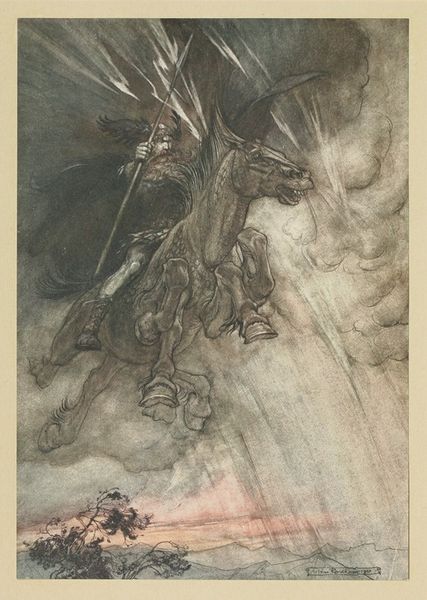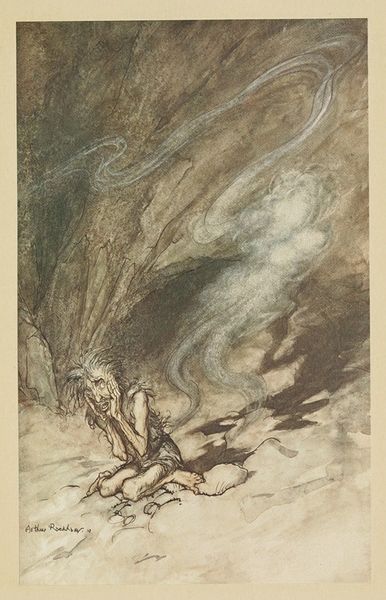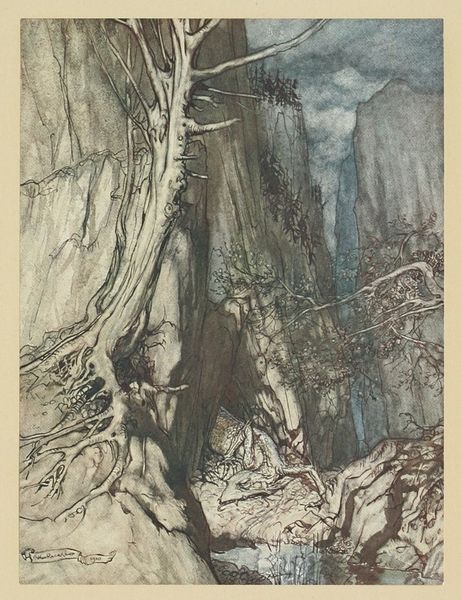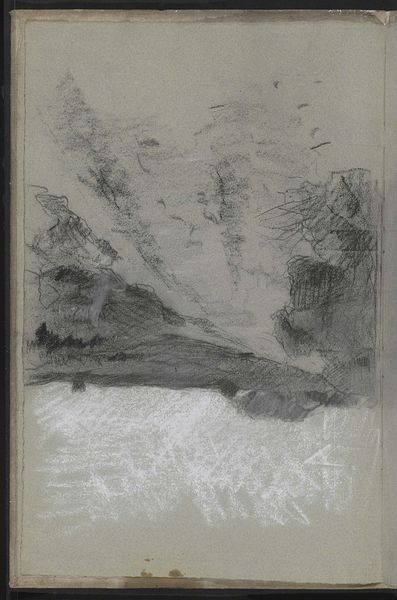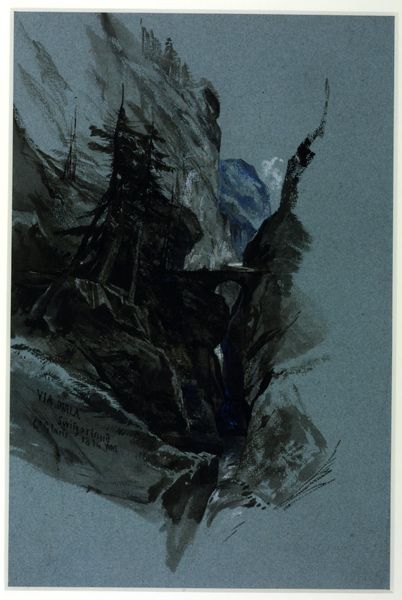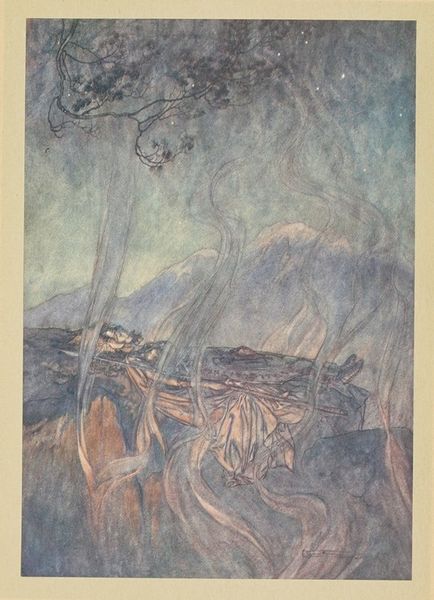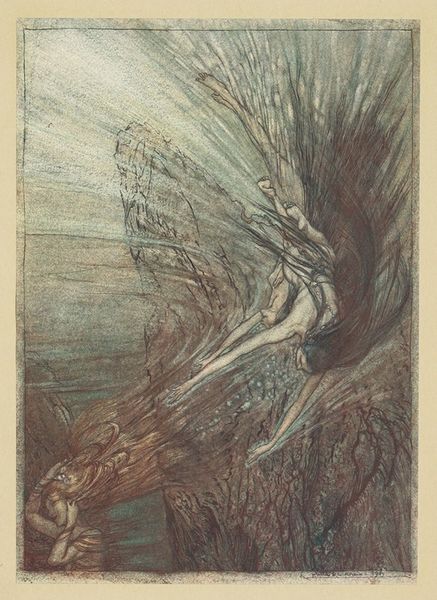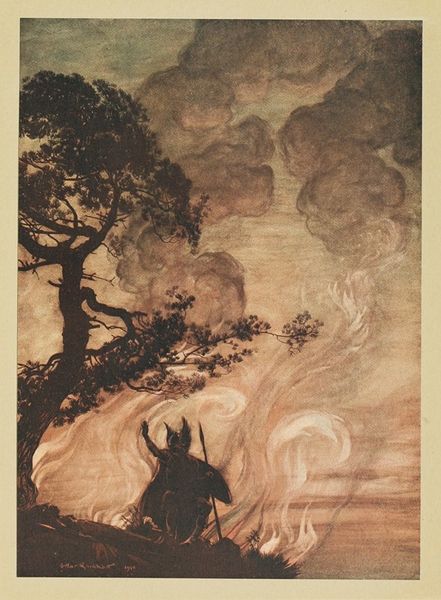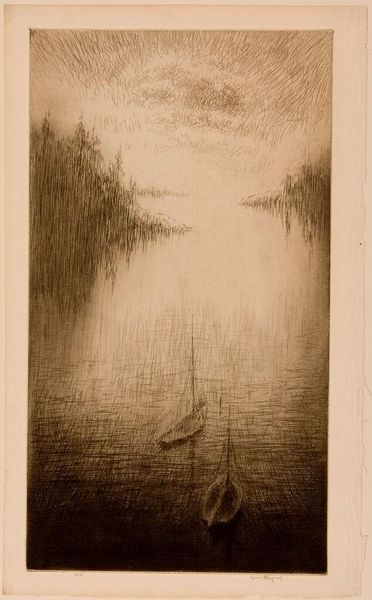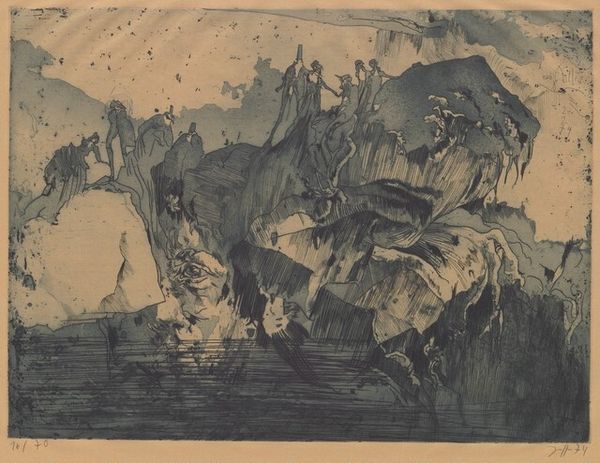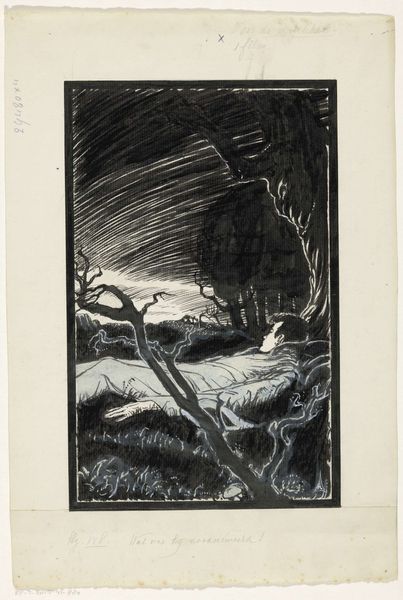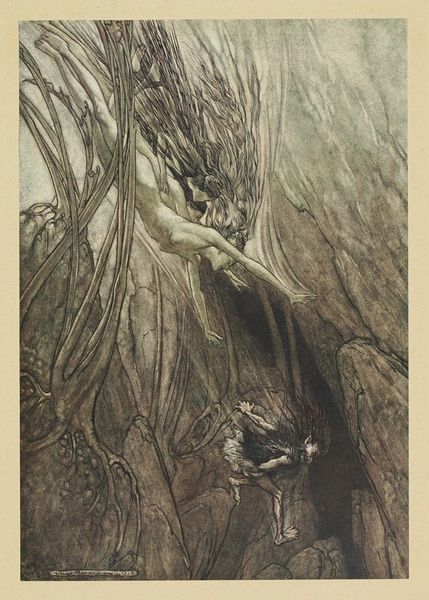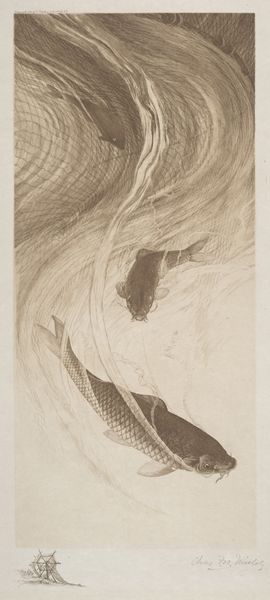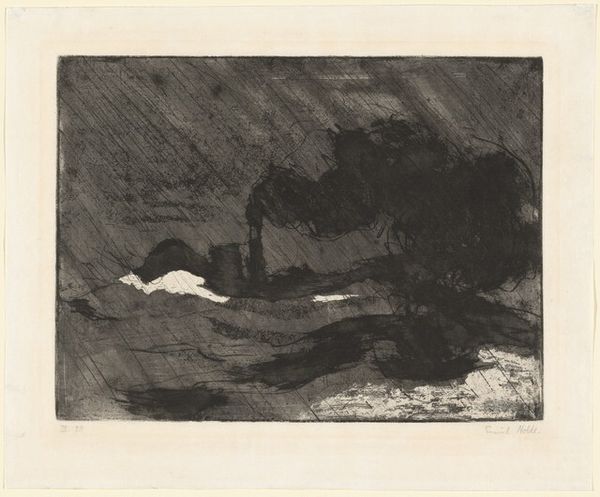
Copyright: Public Domain: Artvee
Curator: Rackham's 'Hey! Come hither, And stop me this cranny!' drawn in 1910. It feels… well, mythic, almost stagey. What do you see? Editor: A definite romantic angst. The muted palette and those birds – vultures, perhaps? – create an ominous tone. It speaks of entrapment, not just physically but perhaps psychologically. Curator: Yes! Entrapment is the word. Notice how the figure seems to emerge from, or maybe be swallowed by, the rocks themselves. The use of pencil, charcoal, and watercolor creates a beautifully textured surface, amplifying the emotional drama. It is not only visual but tactile, like feeling stone and mist with your fingers. Editor: Right, the Romantic era adored using nature as a reflection of internal states, of being human. This drawing very cleverly creates parallels with women’s vulnerability in that historical context; as with their personified entrapment into marriage. Curator: True, and her pose – that outstretched arm – it’s both a plea and a command. There’s power in that gesture, despite the darkness around her. Editor: I read the landscape as a metaphorical prison, reflective of social structures, you see. Even in fantasy art, we find those embedded realities concerning expectations towards gender roles and autonomy. Rackham created fairy-tale illustrations, but those "tales" mirrored their times as always. Curator: Indeed. Rackham presents the feminine experience through fantasy's filter—so even within what is traditionally coded as imaginative space, social realities seep in. But on a different note, imagine Rackham sketching outdoors under a sky not entirely dissimilar to that day, wind tossing hair. It feels… personal, almost, seeing such immediacy preserved. Editor: Precisely! This immediacy helps decode the social message the image implies by focusing the female gaze towards freedom; freedom as the greatest asset for any citizen regardless gender, class, and background. Curator: Yes, and even within its shadowy world, we can appreciate its nuance. Thank you! Editor: Thank you! Art is always ready for a little political-emotional-historical discussion.
Comments
No comments
Be the first to comment and join the conversation on the ultimate creative platform.
